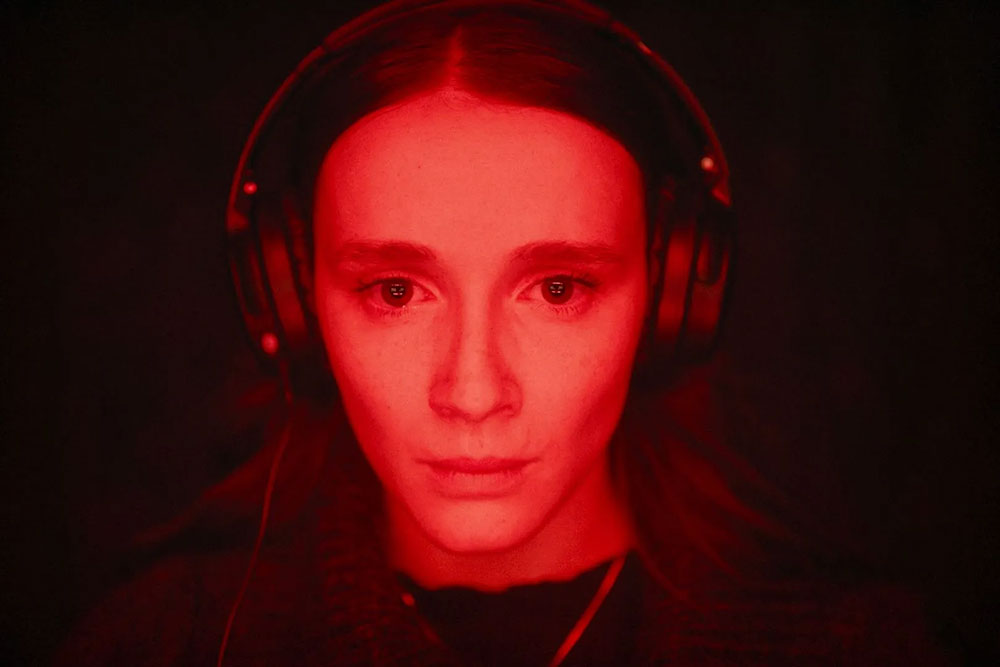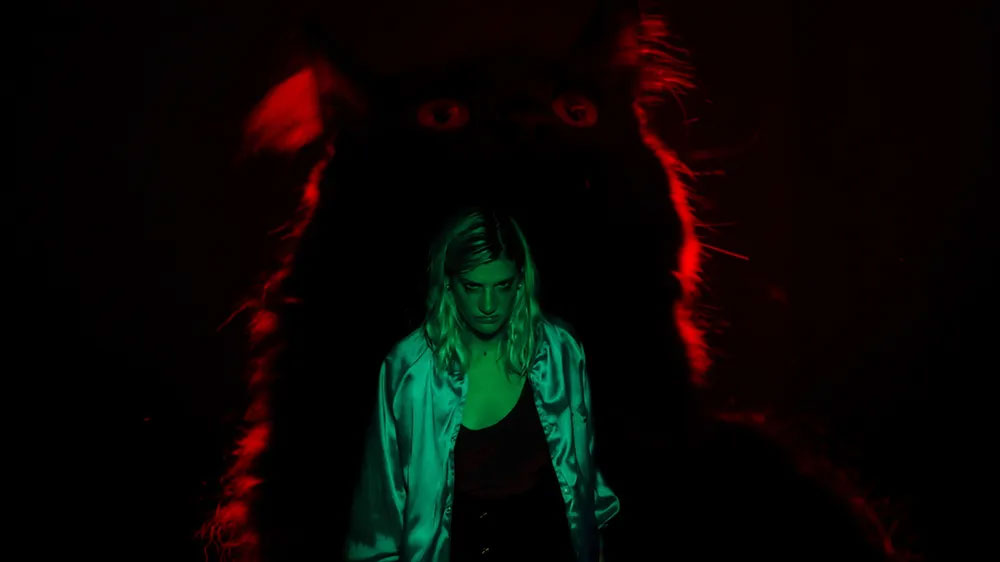After a long, jam-packed New York Film Festival, I was ready to trade in the hallowed halls of Manhattan’s Lincoln Center’s for the haunted halls of Nitehawk Williamsburg. There is perhaps no better way to usher in spooky season in New York than with the annual Brooklyn Horror Film Festival, which over the past decade has grown into a can’t-miss event for East Coast horror enthusiasts. Previously scattered across multiple theaters throughout the borough, this year's festival was concentrated in a single venue, which cultivated a fun and casual “creepy clubhouse” atmosphere. Fans and filmmakers chatted over drinks, flipped through Blu-rays, and indulged in special events for the real heads, such as trivia and a lecture on World War II’s impact on Japanese genre film hosted by the Miskatonic Institute of Horror Studies. Whether you lean into the more intense, boundary-pushing elements of horror or the cheekier, comedic side, this year’s lineup had something for everyone.
The programmers of BHFF should be commended for outdoing themselves each year, both in terms of selecting genre-blending indie horror (much of which are debut works) and in curating a diverse lineup of international and repertory selections. This year’s “Home Invasion” block, which highlights NYC filmmakers, featured some of the fest’s standouts. Mary Dauterman’s Booger (pictured at top, all films 2023 unless otherwise specified) is a surprisingly heartwarming body horror in which a young woman processes the death of her best friend and the disappearance of her eponymous cat. A bite from Booger brings out a monstrous feline grief that begins to consume her. Chris Skotchdopole’s Crumb Catcher, which was voted the winner of the fest’s Audience Award, is one of the weirder house-invasion movies you’ll see, and goes from darkly funny to darkly tragic when a sketchy self-described inventor and his wife crash a young couple’s honeymoon with a blackmail scheme that doesn’t go their way. Aimee Kuge’s Cannibal Mukbang is a funny, disgusting romance set amidst the online subculture of gluttonous eating videos.

Once again, there was an impressive selection of international horror. Paul Duane’s first feature, All You Need is Death, is a fresh take on Irish folk horror in which a secret society conjures supernatural danger using old folk songs. With Breathing In, Jaco Bouwer (Gaia) adapts the beloved South African play about a wounded general in the Anglo-Boer War who discovers he has sought refuge from the wrong woman and her daughter. BHFF alum Bertrand Mandico’s latest feature, She Is Conann, is an unclassifiable, gender-swapped reworking of Conan the Barbarian, with the title character appearing across different historical eras, from the Stone Age to 1980s New York. A personal favorite was Pascal Plante’s French-Canadian film Red Rooms, a disturbing portrait of a young woman named Kelly-Anne who is obsessed with the trial of a serial killer that broadcast his murder of three teen girls on the dark web. As Kelly-Anne does her own investigating and begins to risk her career and personal safety in her obsessive quest for a missing snuff video, her ultimate psychological motivations become more mysterious. Part cyber-thriller, part courtroom drama, Red Rooms speaks to the current moment of true-crime obsession while going to some very unexpected places.
The “Fear in Focus” block this year spotlighted Japanese horror, centering around the release of Sarah Appleton and Jasper Sharp’s new documentary, The J-Horror Virus. Selections in this micro-series spanned decades of Japanese horror films, including Banmei Takahashi’s Door (1988), recently remastered and previously unreleased outside of Japan, Hideo Nakata’s iconic Ringu (1998), and Teinosuke Kinugasa’s silent classic A Page of Madness (1926), which was screened with a live score by local film accompaniment duo The Flushing Remonstrance. Some other repertory anniversaries were celebrated as well, namely the 35th anniversary of NYC ACAB. classic Maniac Cop (1988). The director and local genre-film legend Bill Lustig was present for a Q&A and received the fest’s first ever Leviathan Award.
Horror fandom, for all of its passion, has the tendency to revel in an ouroboros, heralding the same canonical films and artists and producing new works that attempt to capture the scares achieved by the genre’s forebears. It’s a testament to the programming at Brooklyn Horror Fest, with its showcase of diverse viewpoints and styles alongside repertory slates that underscore historical context with a global perspective, that it presents where horror has come from but also where it has the potential to go.
The Brooklyn Horror Film Festival ran October 12–19 at Nitehawk Williamsburg.



